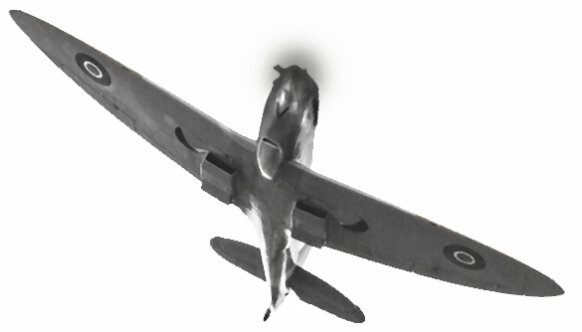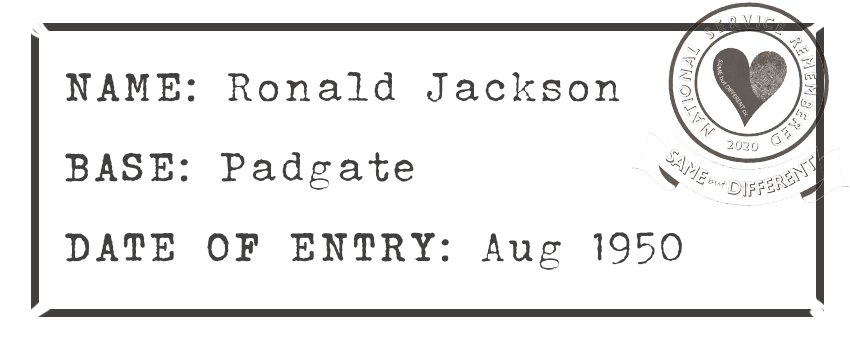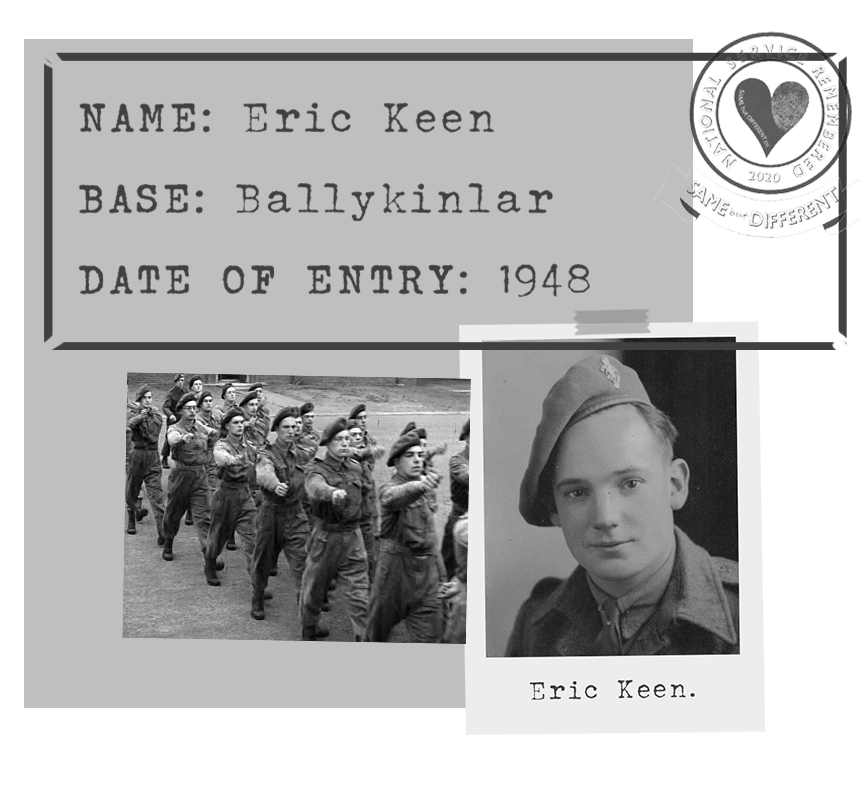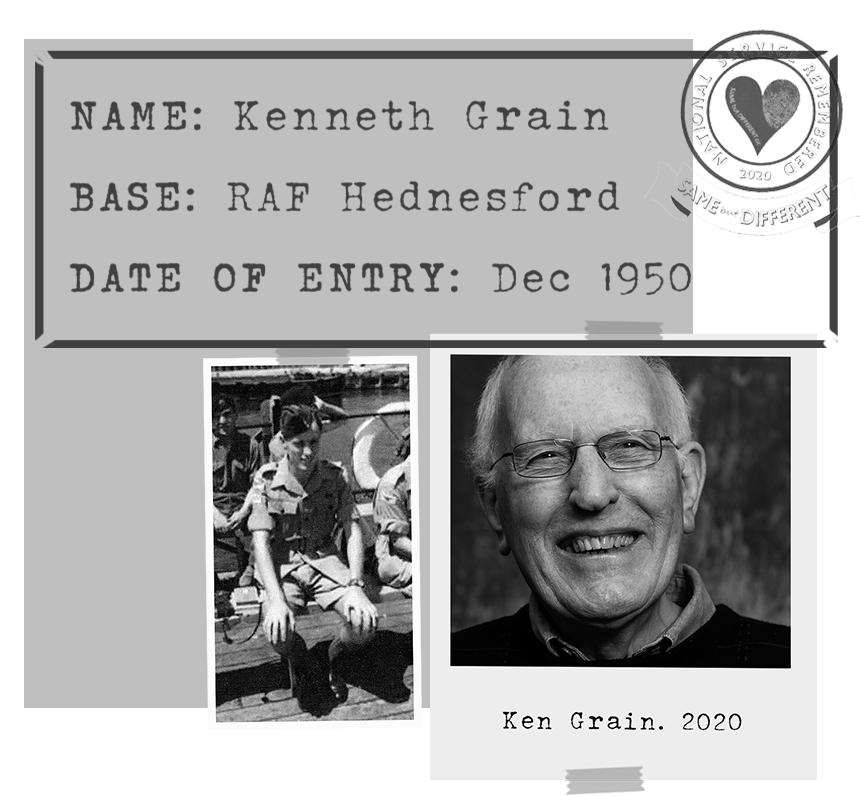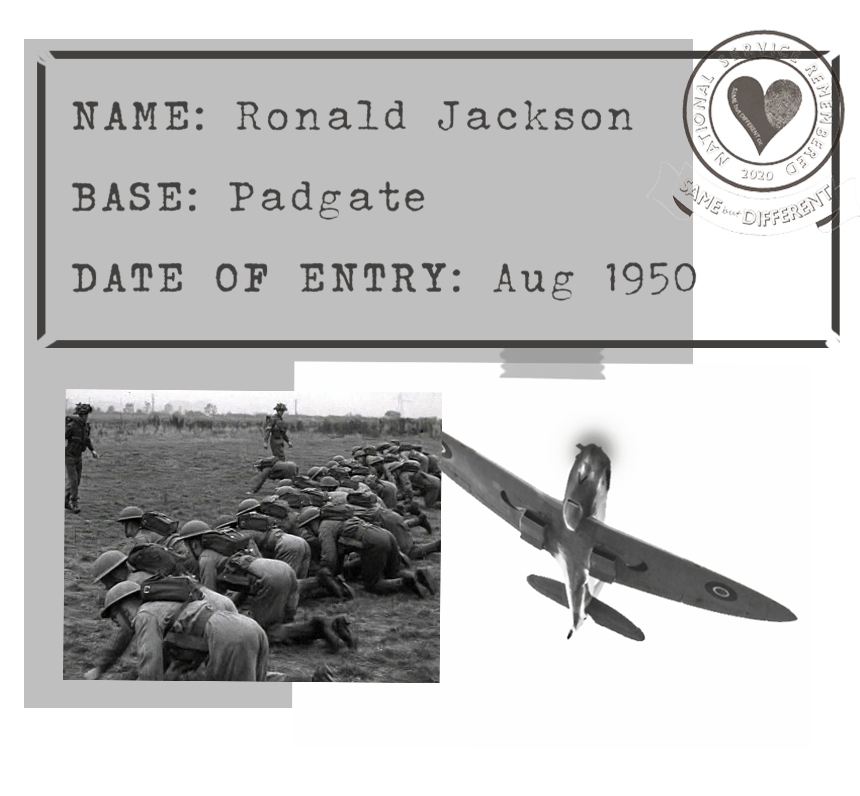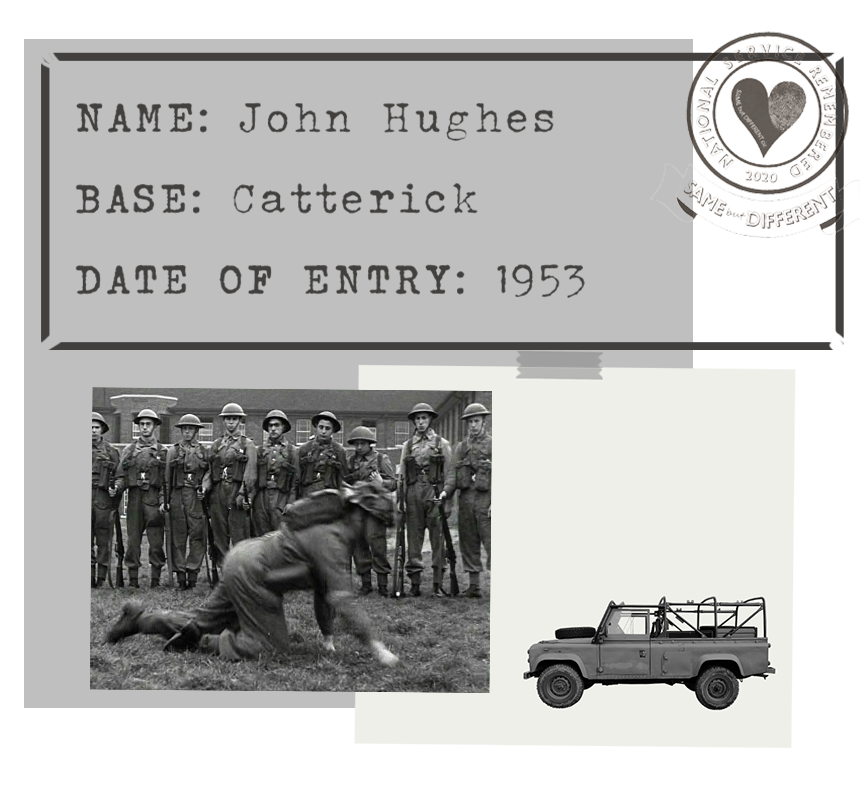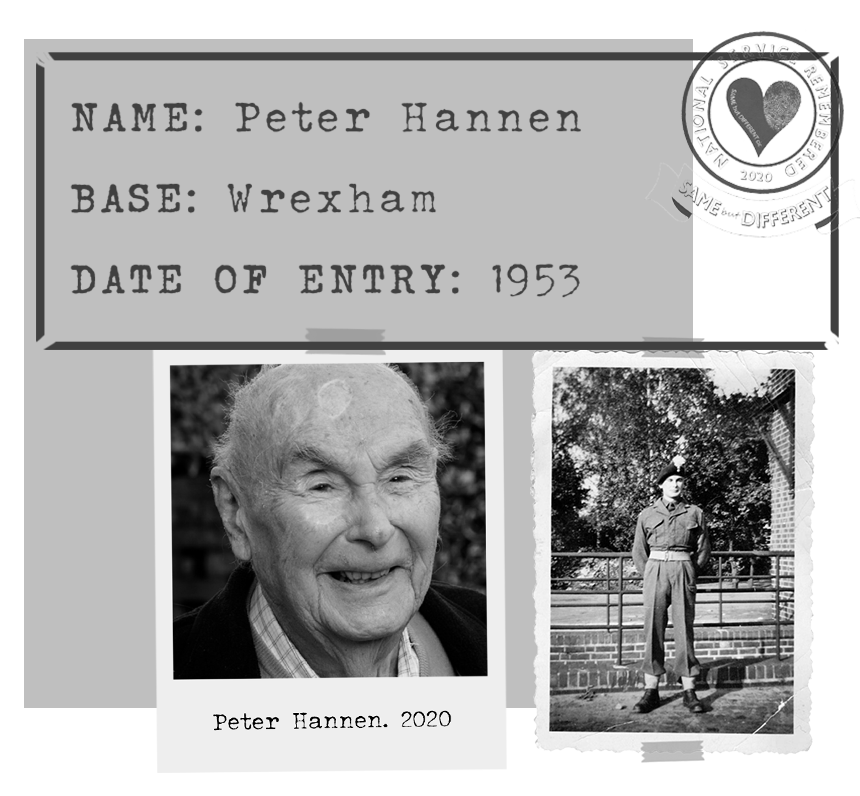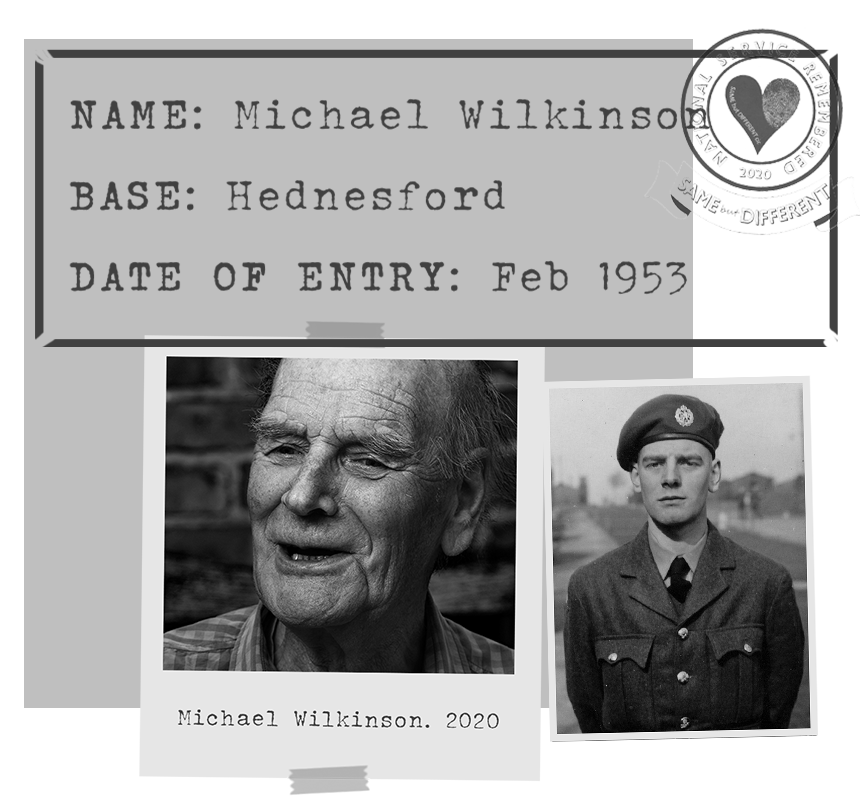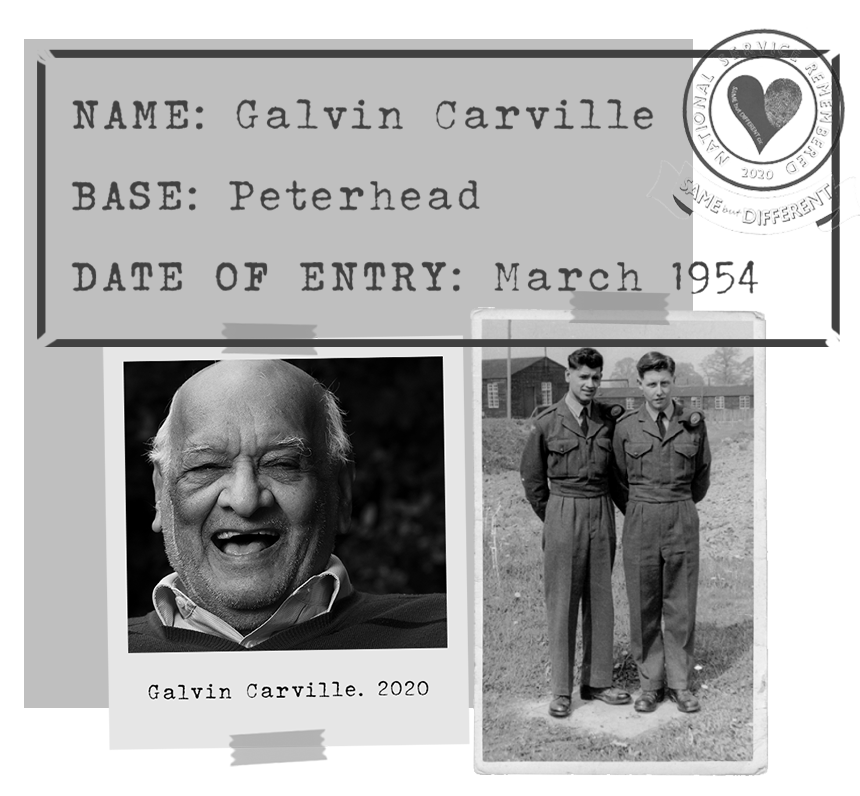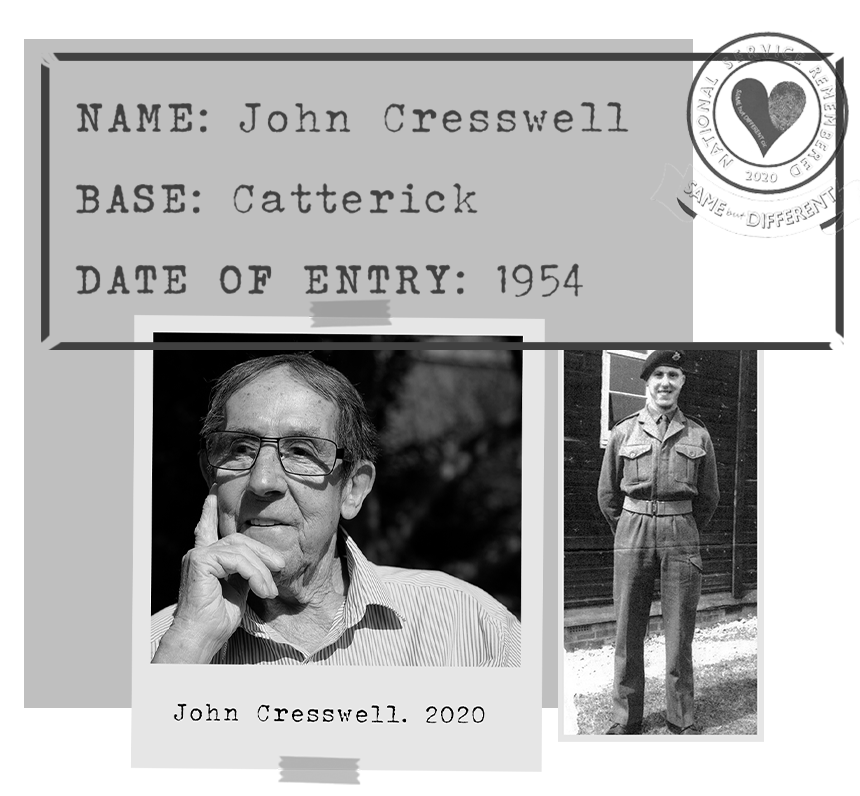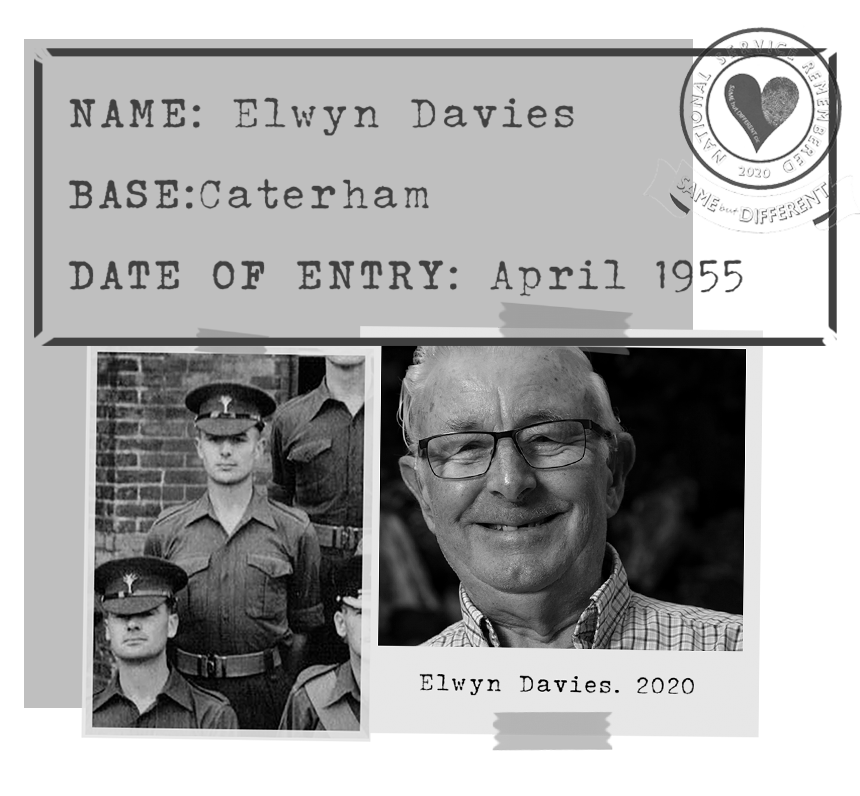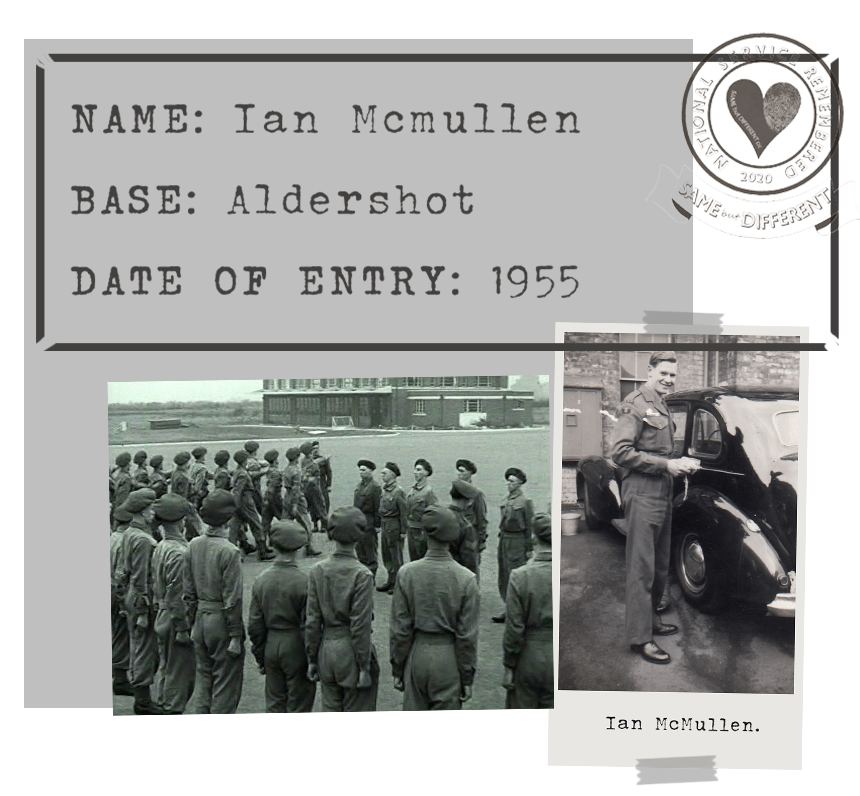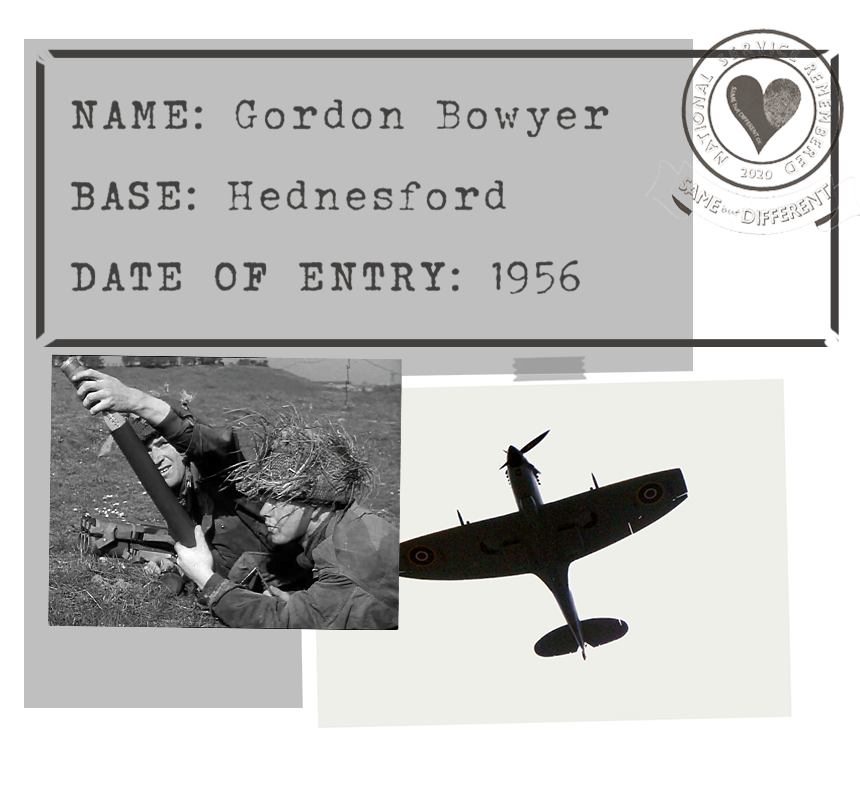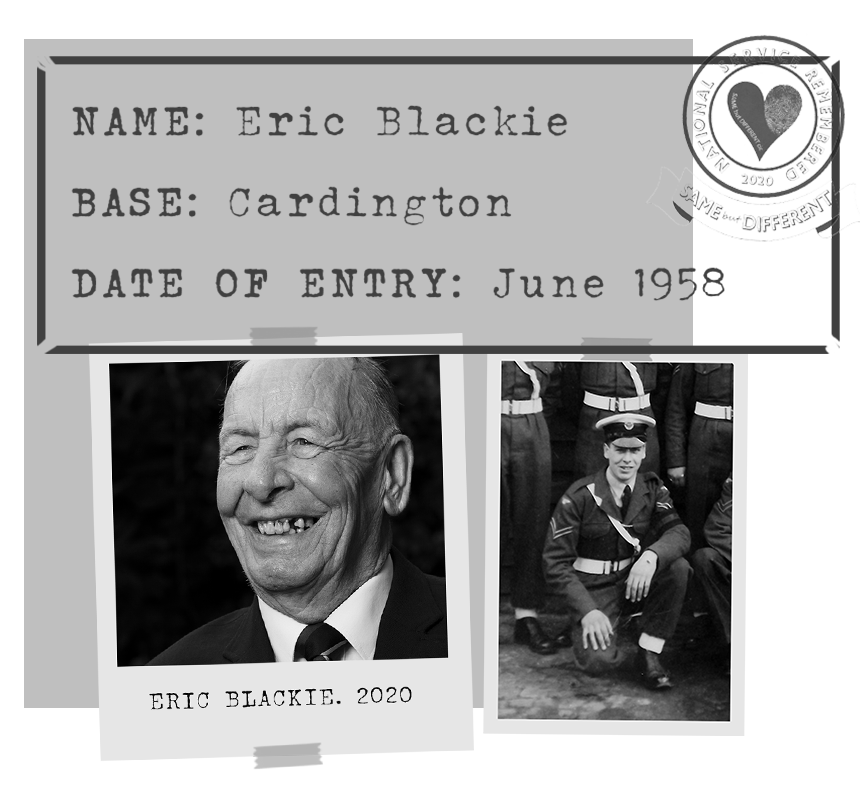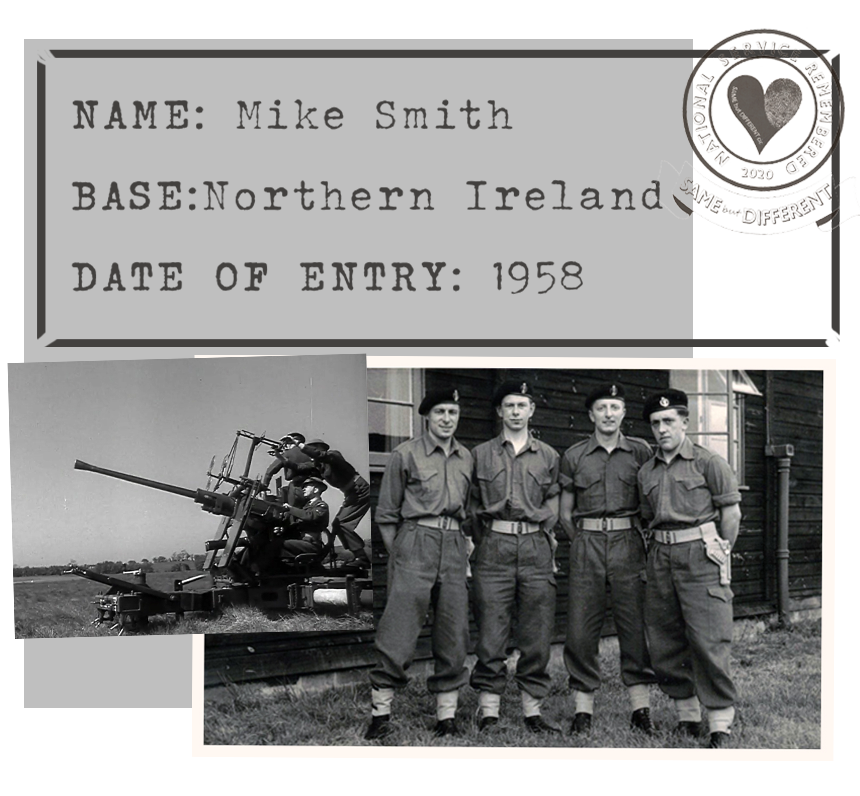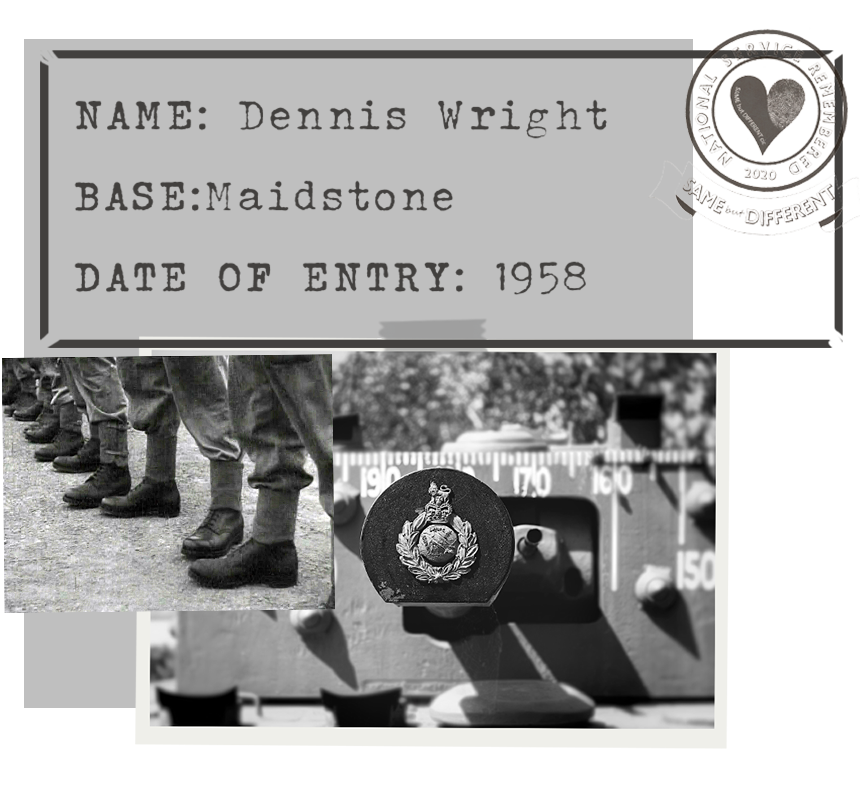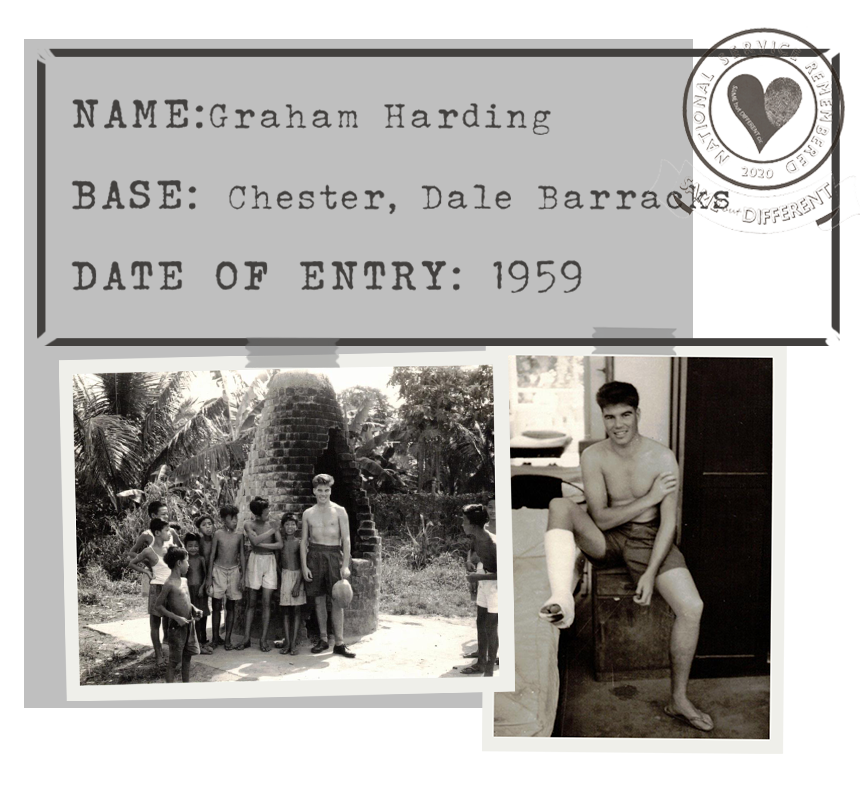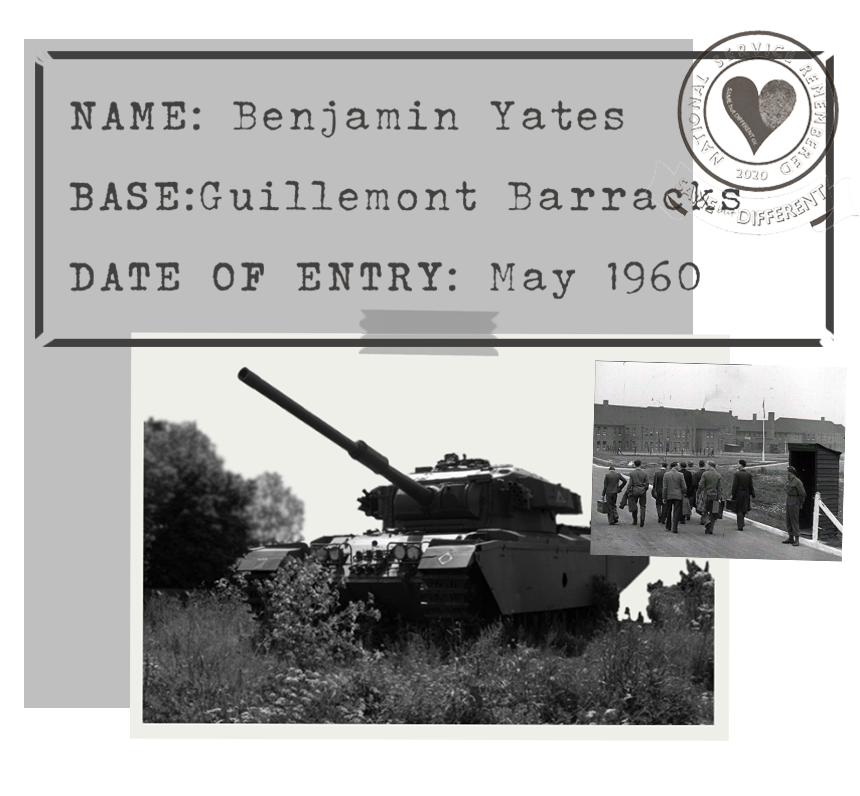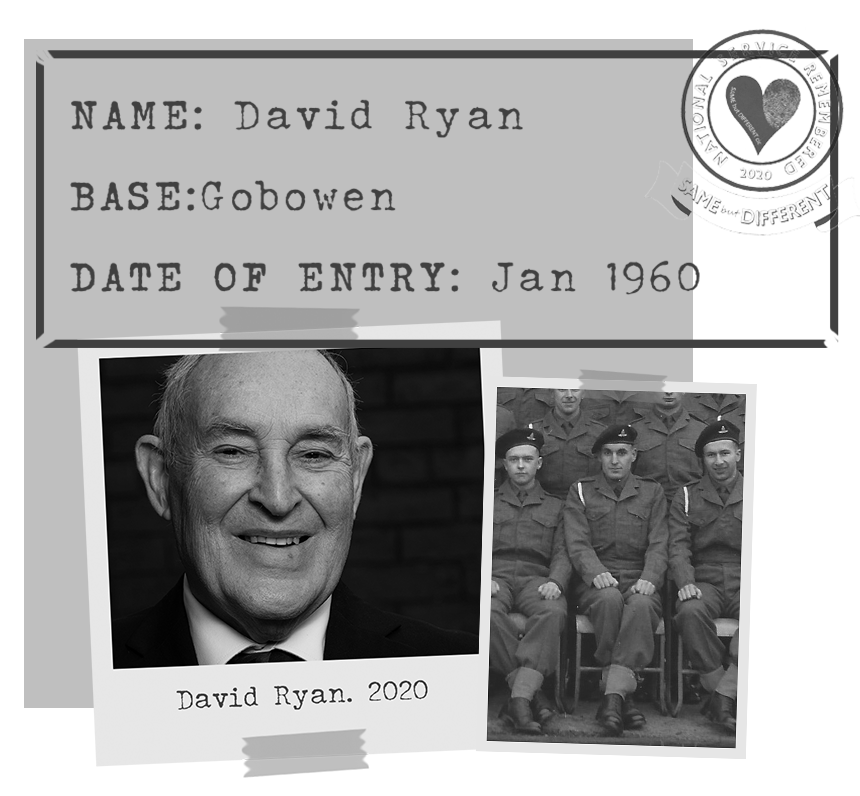““When the Americans arrived and their planes were coming in, we were all along the runway cheering, almost like they’d won the war!” ”
I was just 18, and I’d just finished A-levels at the Grammar School and my date of movement for my National Service was the 9/8/1950. I went to Padgate to do my training. Training was hard work to begin with, you did as you were told or else, and it did some of the youngsters there a world of good to have some discipline. That’s the first thing you learn, when you were doing your square-bashing, it’s discipline. It was very hard at times, especially to begin with until you get into the run of things - making sure your bed was all correctly done ready for kit inspection. All the kit was properly laid out, and any little thing that was wrong was quickly picked up on. I coped with it though it was rather different from civilian life, but you quickly learnt to get things right.
I was a bit worried about being called up. I went in for 18 months and while I was in, the service time went up to 2 years. That actually suited me in a sense because going in in the summer-time meant I then came out in the summer-time and then I was ready to go to college to become a teacher, so it worked out quite nicely. But I must admit, it was concerning and a bit worrying to begin with because I’d had, in a sense, a more sheltered upbringing. But I always said to people afterwards, I went in as a boy and came out as a man. It’s difficult to express it properly but you met all sorts of people, all kinds of ideas, attitudes and it gave me a much wider insight to the outside world.
““Training was hard work to begin with, you did as you were told or else, and it did some of the youngsters there a world of good to have some discipline.””
I was given the choice between the RAF and the Army, and then between bomber command and fighter command. As a youngster, just after the war, fighter command seemed to be more on the glamorous side. I would have liked to have gone into Radar but I was told I was colour blind, which I’ve never been told before.
After all your aptitude and medical tests, they then judged where you were best placed.
I was moved to Manston into a department known as the equipment section. I was there for several months in RAF Manston in Kent and then moved on from then, again in the equipment section to RAF Bentwaters which was in Suffolk. Had I been in the mechanical engineers, I might have been in a completely different area altogether, but I was quite happy, if you like, serving my fellow men.
We were shuttled between RAF Wattisham and RAF Bentwaters and then when the RAF part closed down, I moved on to RAF Chivenor. I moved there for a while at barracks in the Cornwall/Devon area and then moved to RAF Wymeswold which was in Leicester, so I got around the country a bit. I’d been promised at one time they would move me nearer home which was in Cheshire and I think the nearest I got to home was Wymeswold, but it was an interesting experience. I stayed in the UK the whole time and regretted it afterwards.
I had the chance to go out to Germany, they were asking for volunteers to go out there, but I was concerned about getting into college to do my teacher training and I thought I’d miss out, going abroad, on interviews and things like that. I was told later it wouldn’t have made any difference, that they would have taken that into account. Nevertheless I got around the country, learnt how to catch the right trains and get the right times and learnt how to manage the London Underground at times, so it was a big experience and it made you grow up. The equipment I was giving varied in different places, sometimes it was uniform replacement perhaps. At one posting we were giving out equipment for Officer’s homes, tables and chairs and barracks equipment. I had two elderly gentlemen in there who were the bosses, they were two very nice elderly gentlemen. They weren’t in uniform because they were civilians but they had everything at their fingertips and soon put me in the right place to do the right thing.
“I’d been promised at one time they would move me nearer home which was in Cheshire and I think the nearest I got to home was Wymeswold, but it was an interesting experience. I stayed in the UK the whole time and regretted it afterwards. ”
It was an interesting time, worrying to begin with but I enjoyed it once I got into it and I was doing some work.
I also enjoyed some of the leisure activities - it depended on the size of the unit as to what leisure activities they had, but one summer I was on the cricket team. I was fortunate to get around the country a bit, from east to west and in the Midlands and I met some very nice people.
Another time, I think it was while I was at Padgate, they came around looking for volunteers. Now, the saying was ‘never volunteer for anything’, because you don’t know what it can be, and often it was something not very nice. Anyway, they came around one morning and were looking for about 8-10 volunteers to do something ‘very interesting.’ When they say things like that you think ‘in for a penny, in for a pound’ and so I volunteered with a number of others. “Right, go and get changed into your best blues and be back out here twenty minutes”. They then dismissed the others and told us we were off on a flight on a Dakota, which I thought was rather nice. They took us out to an airfield not too far away and we had a flight around in one of the old Dakotas.
I had some interesting experiences. One I remember was two of us being sent out to this base where we stayed overnight for a couple of nights in the cells. We were given some equipment, obviously to bed down for the night, we were there to let these lorries and things in, a whole lot of them, during the evening. A few months later, the Americans moved in. When they arrived and their planes were coming in, we were all along the runway there cheering, almost like they’d won the war. It was great to see their planes coming in. Little things like that that stick in your mind, even now, when it was such a long time ago.
When you were de-mobbed, it was all at different times and usually you were just on your own with your final train ticket, “Goodbye, good luck and thanks” - none of us ever kept in touch.
Recently I found a way to get in touch to ask for my national service records because I couldn’t remember it all. When the post arrived, the envelope said ‘RAF Disclosures’ on it and it was a handwritten form. I have some very happy memories of it. At the time I didn’t like it, but afterwards things stuck in my mind and I thought I’m glad I did that. I think it was a very good experience for myself, definitely at the beginning, it made me grow up and to appreciate home more. I think my parents noticed the difference in me. It wasn’t so long after I came out that I was back into college again and turned to hard work of a different sort.
A lot of my fellows teacher trainees at college were ex-National Service people, but we didn’t have a lot to say about National Service then. We’d done it, it was something we had to do and then we were on to the next stage in life. But I think it would be good for kids these days, quite honestly. When I was teaching, I became a head teacher and we’d have students in school on teaching practice and they’d go from school to school with no experience of the outside world. I felt that I’d had some advantage over them by having to do this National Service. The best part was it making me grow up.
I’m 88 now, it was all quite a long time ago now. I lost my wife two years ago but it’s nice to get out into my garden and do some gardening. Lots of people walk past and say “good morning.”


